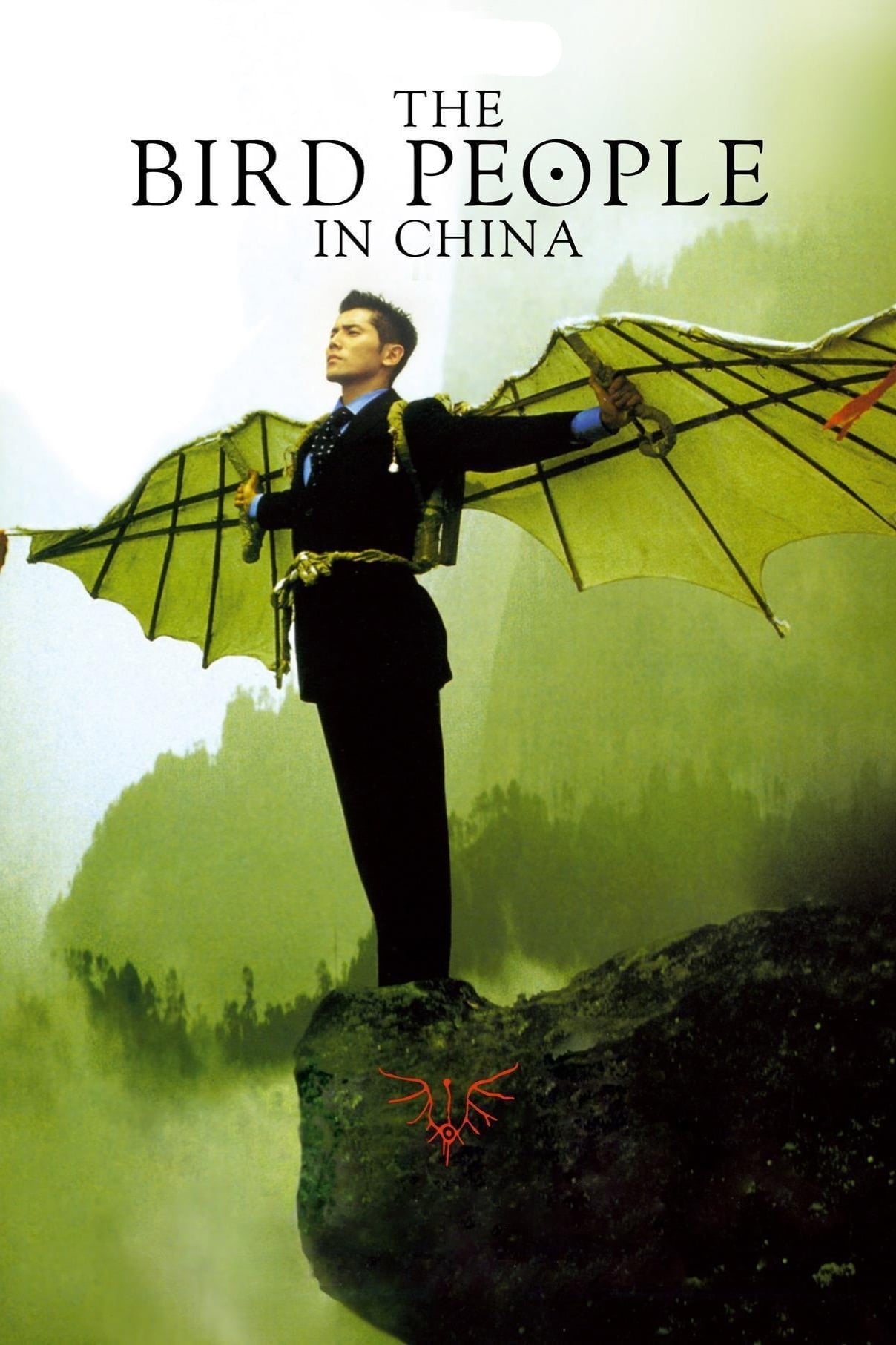
Wada, a salary man, is enlisted to venture off to China to investigate a potential Jade mine. After his arrival, Wada encounters a violent, yet sentimental, yakuza, who takes the liberty of joining his adventure through China. Led on their long and disastrous journey to the mine by Shen, the three men come across something even more magical and enticing.
11 Sep The Bird People in China (1998)
Purity, Song, Jade
Miike has a pretty solid pattern. He makes films for a distinctly Japanese audience, teasing out some issue or two that seems culturally rooted. This is his context. He shifts it into a magical, cinematic world and imagines scenes as episodes within this containing structure.
So we get impressed by the big idea — more so if Japanese — and also impressed by some of the episodes, those that work. Oddly, the general audience thinks that Miike prefers violence but I think he will simply do anything that has cinematic power that fits his large-to-small vision.
Japanese have a strange relationship with the mainland. They know they (the main “race” on the islands) originated in Korea. The urge is to project back beyond that and posit a people who came as a group from some magical location deeper in the mainland. This story in the large hangs on the myth that the race came from a remote mountainous region in China, Yunnan. It isn’t quite China, with the people and traditions being a melange of China, Tibet and Indochina.
A dear Japanese wise man explained to me that the indigenous people on the islands came from Polynesia and had a “horizontal” cosmology, while the later migration from the mainland — being mountain people — had a vertical cosmology. This subtle insight advises all sorts of things: architecture for one, cinematic composition for another. In this case, it includes the myth that the proto-Japanese could fly.
Here we have two stereotypical characters (plus one who appears briefly) on a quest to find this magical source. The film is clearly in two halves. The first half is reality-based and full of jokes. Then in the midst of a flood after crossing mountains, the thing takes a shift into magic. They are transported the final leg by harnessed turtles, itself referencing an ancient story.
Into this they carry all sorts of things associated with Japan (by modern Japanese), and little of it makes sense in this new place. A simple view will see a simple ecological message, but that is not the case here. It is about what is pure; its attractions and curse. The final scene is very nice, but what matters is the narration of our “reporter” right before that. The longing is pure.
Li Li Wang, plays the woman at the centre of this place. She is amazing.
Posted in 2010
Ted’s Evaluation — 3 of 3: Worth watching.


No Comments